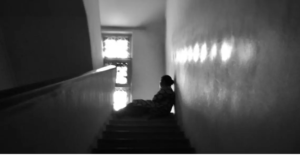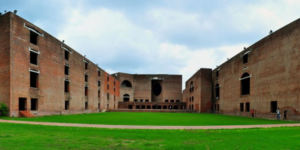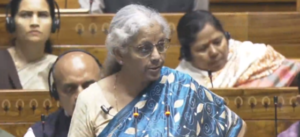❈ ❈ ❈
NAPM Condemns Right-Wing Violence Targeting Muslim Community in MP
3 Jan 2021: NAPM is deeply disturbed and outraged at multiple instances targeting the muslim community and their localities, places of worship in the districts of Mandsaur, Ujjain and Indore in Madhya Pradesh. We clearly see a pattern in these crimes to incite hate and violence against the muslims by certain Hindutva forces, with the BJP-ruled state government remaining luke-warm to the offences being committed. We are worried about the deteriorating atmosphere, appeal for calm from all communities and call for stringent action by the state government against the right-wing goons and organizations who have been responsible for the vandalism and violations.
Based on reports in the media and field information, it is learnt that as part of the week-long donation drive for construction of the Ram Mandir in Ayodhya, multiple incidents have occurred in the past week in the Malwa-Nimad region, a strong hold of the RSS.
1. BJYM Rally & Communal Incidents in Begumbagh, Ujjain
On 25th December, about 300 members of the Bharatiya Janata Yuva Morcha (BJYM) and other right-wing organisations reportedly shouted inflammatory slogans, prompting residents to object to their rally in the Begumbagh locality, leading to stone-pelting and injuries to 11 individuals, with one person grievously injured. A day later, the Ujjain Municipal Corporation (UMC) came to remove ‘illegal structures’ in the area. However, a local social worker Mohammad Ayub claims that, when UMC officials realized that the house they were about to demolish belonged to a Hindu named Meerabai, they instead demolished the adjacent 2 story house of Abdul Hameed (Abdul Rafiq). Meerabai, who has temporarily given a room to Abdul to stay, says her neigbour is a working class person who built the house with hard work of 35 years !
Reports indicate that the police has so far arrested upto 18 residents of Begum Bagh, of whom about ten members (including Ayaz Mohammad, Wasim Aslam, Shadab Akram and Altu Aslam) have been booked under National Security Act (NSA) and ten others have been booked on charges of attempt to murder, rioting, voluntarily causing hurt and giving false statement. At least two of these are women. Apparently the police is on the lookout for two muslim women, Hina and Yasmeen. It is not clear if any members of the BJYM / rally participants have been arrested yet, in spite of video evidence showing them pelting stones.
2. Right-wing Rally in Chandankhedi, Indore
On 28th December, ‘clashes’ with stone-pelting were reported from Indore during a rally organised by right-wing groups through Gautumpura, in Chandankhedi, an area with sizeable muslim population, leaving 5 people injured. As reported by officials, around 200 people chanted ‘Hanuman Chalisa’ and “Jai Shri Ram” slogans outside the mosque when prayers were being offered inside. This led to a heated exchange between the group of 200 people and Muslims, and to stone pelting. Witnesses inform that some members from the rally holding saffron flags climbed the mosque and tried to damage the minaret. Videos also showed the Hindutva group members trying to damage nearby houses and vehicles. The Indore police claims to have arrested upto 30 people, of which at least 27 are villagers and plans to make more arrests under NSA. A day after this incident, district administration began demolishing around 80 houses in the Muslim-locality of the village, for ‘widening the road’ and stated that this had ‘nothing to do’ with the violence on the previous day.
3. VHP Mega Rally in Dorana, Mandsaur
It has been reported that on 29th Dec afternoon, a rally of an estimated 5,000 workers of Vishwa Hindu Parishad (VHP) marched the streets of Dorana village in Mandsaur district. At about the same time, a large mob played loud DJ music outside the mosque, vandalized and looted properties for almost 3-4 hrs in the muslim locality, which constitutes one-fifth of the village population. They also placed a saffron flag on the mosque. Petrified at the manner in which they were targeted, many muslims, including women fled their homes and some hid in the fields. VHP however claims their rally was ‘peaceful’ and ‘some other miscreants’ were responsible for the incident. The District SP has stated on record that no permission was taken for rally.
Media reports indicate damaged window panes, broken doors, walls scribbled with ‘Jai Shri Ram’ and many muslim villagers scared to return to their own homes. The police have since arrested five persons and registered an offence against 58 others based on complaints by the villagers. Apparently, the administration has lodged four FIRs for alleged vandalism and desecration of a religious place. The right-wing groups have also filed 2 FIRs against Muslims with the claim that they were abused and attacked.
Reports indicate that in some of these rallies, weapons were also carried. In a letter to the Dhar Collector dt. 26 Dec, Abdul Samad, one of the leaders of the Dhar Muslim community has raised the concern of biked right-wing rally members shouting offensive slogans and brandishing lathis, dandas and sharp weapons against Muslims. Mr. Samad has demanded legal action against the coordinator, organiser and participants of the rally.
This spate of incidents takes place just as Madhya Pradesh added its name to the growing list of states enacting anti-conversion laws. Taking the ‘Ordinance’ route, the Govt of MP enforced the Madhya Pradesh Religious Freedom Bill, 2020 (approved by the Madhya Pradesh Cabinet on 27th December). The Bill prescribes imprisonment upto 10 years and a fine of Rs. 1 lakh for ‘conversion through marriage or by any other forceful means’ and also makes stricter provisions for ‘mass conversions (of two or more people)’ and ‘religious conversion of Scheduled Castes, Scheduled Tribes and minors’.
The relentless changes in legislation enabling targeting of minority communities, as well as the clear sense of impunity evident through the Ayodhya Verdict, the handling of the Delhi ‘Riots’ (2020) and similar incidents, further endangers an already vulnerable minority population, in particular, women, whose agency is held null and void. It must also be noted that, with an eye on the upcoming local body elections in MP, the state government has been using the incidents of communal hate to cover up its failures and the massive support being received for the farmers struggle in the state. The recent arrest of stand-up comedian Munawar Faruqui, along with Edwin Anthony, Prakhar Vyas, Priyam Vyas and Nalin Yadav on the charge of ‘hurting religious sentiments’ also needs to be seen in this broader context.
National Alliance of People’s Movements (NAPM) condemns the targeted and organized right-wing attacks on muslim community, their localities and places of worship and demands the following:
a) An independent and time-bound judicial investigation into all the incidents of violence, vandalism and demolitions at Indore, Mandsaur, Ujjain and Dhar as part of the ‘Ram Mandir Nirman Nidhi Sangrah Abhiyan’.
b) Stringent legal action against the concerned persons and organizations who incited and participated in the violence as well as action against officials who were responsible for dereliction of duty.
c) Government must ensure the complete safety and security of all citizens, in particular those belonging to the vulnerable minority community.
d) Payment of appropriate compensation, based on market value, to all those persons whose property has been damaged in these incidents.
e) No permission must be accorded to any public rallies in the name of ‘temple construction’ that have potential to give rise to communal tensions and violence.
f) Govt of MP must immediately withdraw the unconstitutional Madhya Pradesh Religious Freedom Bill, 2020 that seeks to legitimise violence against minorities and their faith.
❈ ❈ ❈
NAPM Condemns the Forced Evictions in Sathyavani Muthu Nagar and Thangavel Street, Chennai in the Midst of the Pandemic
3 Jan 2021: National Alliance of People’s Movements (NAPM) is deeply disturbed and outraged at the continuing evictions of working people from their houses in multiple localities in Chennai, including at Sathyavani Muthu Nagar and Thangavel Street. Such apathetic eviction drives, especially in the midst of a pandemic, that only seem to prey on the historically oppressed and the marginalized communities, reveal the casteist and elitist leanings of the state machinery, in the garb of ‘development’ and ‘city planning’.
Evictions at Sathyavani Muthu Nagar
We are appalled that municipal authorities have demolished around 40 houses in Sathyavani Muthu Nagar (SM Nagar), a few weeks back, leaving many families homeless. SM Nagar is one of the largest slums in the country where around 2,100 families lived. However, in the last two years, close to 80 per cent of the families have been evicted for ‘river restoration’ projects. (Omjasvin, Dec 2020).
Exactly in the winter of last year (Dec, 2019), officials from various departments including the Chennai police, slum clearance authorities and the state public works department forcibly evicted “around 3500 settlements along the Cooum river near Triplicane” under the Cooum river eco-restoration project. The move left the residents including school-going children homeless overnight, sparking protests among the residents (Jayarajan, Dec 2019; Viswanathan, Nov 2020). However, authorities continued the demolition process despite protests. NAPM salutes the resistance of many of the residents who have been struggling against these arbitrary evictions, including those who stayed neck-deep inside the sewage-laden water, without any food or water.
Evictions at Thangavel Street
In a more recent development, on 28th December, 2020 the Chennai Corporation authorities along with the police visited Thangavel Street, T Nagar and threatened the 77 families living there with eviction. After hours of protesting, the people requested time till the end of January 2021 to move. Indifferent to their plight, the authorities proceeded to demolish the houses of 21 families and now are continuing with their coercion by depriving the people off necessities like electricity.
The 77 Dalit families have been residents of this area for over 50 years. Despite an order passed by the Government of Tamil Nadu that Housing Pattas can be issued for families that have been residing on Government Poramboke land for a period of 5 years, these families, who have lived here for over 50 years, have not received any Patta.
Some major concerns due to the arbitrary evictions are:
- Impact on livelihood:
- Many of the residents are workers in the unorganised sector, daily-wage labourers, domestic workers, etc who have already suffered immensely due to the pandemic and the lock-down. Such forced evictions during a pandemic have only worsened the adverse impacts on their lives and their livelihood.
- The residents worry that even if ‘relocated’, the move might drastically affect access to their daily work, if the relocation is outside city limits. Such a move will also affect their children who attend schools in the neighbourhood. (Jayarajan, Dec 2019). It may be noted that this is not mere apprehension, but based on multiple past experiences of shoddy ‘rehabilitation’ of thousands of other evictees who were literally thrown out of the city, miles away from their work sites.
- The main demand of the residents, therefore, is that they need housing within the city limits as most of them are labourers, auto drivers or from other informal sectors. (Omjasvin, Dec 2020)
- Uncertainty in relocation and rehabilitation:
- As of November 2020 (Viswanathan, Nov, 2020), only 1,750 families were relocated from SM Nagar to the Tamil Nadu Slum Clearance Board tenements in Perumbakkam. However, the remaining 350 families are living a life of uncertainty.
- The families currently living in SM Nagar live amid debris. Newspaper reports note that children in the area study and play amid the debris of houses.
- Many of these families are now cut off from basic facilities like electricity and water supply. (Viswanathan, Nov, 2020).
Saga of Evictions camouflaged as ‘development’
It is commonplace knowledge that eviction of people living slums like SM Nagar or Thangavelu Street are not isolated incidents, but part of the systemic apathy, furthered by neo-liberal notions and actions of ‘development’ championed by the Central government and several state governments. Reportedly, under the new ‘eco-restoration’ initiatives, close to 60,000 families have been earmarked for eviction from the banks of Chennai’s rivers, according to the Tamil Nadu Slum Clearance Board (TNSCB), The families are considered to be living in “objectionable locations,” which means in low-lying, flood-prone areas. Many have already been relocated.
This anti working-class development model continues to cause the suffering of millions who are displaced in the name of development and renders this suffering invisible. Any restoration or development project must include community participation. In 2019, the Delhi High Court (Ajay Maken v. Union of India) observed Right To The City as an “extension and an elaboration of the core elements of the right to shelter”. A right to the city, as examined by activists and scholars, is a right of all the residents of a city to “an equal share of the benefits offered by the city as well as the right to participate equally in the planning and creation of the city”.
Thus, any such project that excludes the local communities from participation breaches this right. Further, any such project that requires the forced eviction of persons without adequate and better-off rehabilitation measures is but a mere beautification exercise aimed at making life easier for the city’s dominant sections. ‘Development’ or ‘ecological conservation’ cannot be sans fairness and equilibrium, impoverishing the working people, even further. That these “few” are often the most marginalized, stigmatized persons in the region reflects the iniquitous ideas of growth plaguing the nation and begs greater attention.
The right to shelter is an internationally recognized right. On multiple occasions, Courts have acknowledged the right to shelter as an important component of the right to life as enshrined under Article 21 of our Constitution (as early as from Olga Tellis v. Bombay Municipal Corporation, (1985) 3 SCC 545). Numerous international covenants that India is a signatory to, also provide guarantees against forced evictions. Despite this, persons (often the most marginalized and stigmatized) are rendered shelterless by the state without any concern for their life, dignity, and access to the minimum basics of “food, shelter, and housing”.
A statement released by the Housing and Land Rights Network (HRLN) on 19th November, 2020 notes that over 54,000 people have been affected by eighty-three forced evictions and demolition incidents by Central and State governments across India between 15th March and 31st October 2020 alone. This, at a time when the nation was reeling under the combined effect of pandemic, lockdown and unprecedented economic distress.
In numerous cases, the affected persons were not provided prior notice or resettlement. They have been rendered homeless and face heightened exposure to the coronavirus as well as the cold weather and air pollution, which compounds their health risks. Reasons for the documented evictions include construction and infrastructure projects, government and forest land clearance, ‘beautification’ projects, and implementation of court orders. Regardless of the rationale provided, evictions cannot be justified during this severe pandemic.
It is indeed a monumental institutional crime that despite the acute public health and economic crisis, human rights violations continue to be perpetuated by the State by way of forced evictions and displacement, landlessness, homelessness, agrarian distress, gender-based violence, attacks on civil liberties, and persecution of human rights defenders.
National Alliance of People’s Movements (NAPM) condemns the current and previous rounds of forced evictions in Sathyavani Muthu Nagar, Chennai and Thangavel Street, in violation of due process, without providing adequate accommodation and livelihood guarantees to the people, most of who are Dalits.
- We stand with the aggrieved families who have been braving the brutal show of force by the Corporation authorities and the Police, including deprivation of necessities like electricity.
- We call upon the Govt. of Tamil Nadu and concerned authorities in Chennai to uphold the right to life, livelihoods and housing of the urban working class in the state.
- We call upon the Govt of India to immediately announce and enforce a nationwide moratorium on all forms of evictions, at least until June 2021
- We demand that no forcible evictions be carried out by the Govt. and the right to dignified housing, with all civic amenities be ensured immediately.
(Medha Patkar and several others, for NAPM.)




